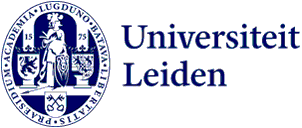
New course Experimentation I: Programming Psychological Experiments developed with Grass Shoots grant
Last year, Henk van Steenbergen received a Grass Shoots grant to completely redevelop the research master's course 'Experimentation I: Programming Psychological Experiments'. The revised course was taught for first time last block and has just come to an end. Time for a brief recap.
During the course, students learn to program and design behavioral experiments. Previously, this was done in the E-Prime software package. The renewed course focuses entirely on the Open Source softwares OpenSesame and the programming language Python.
With the scholarship Henk van Steenbergen, associate professor at the Cognitive Psychology section, and PhD student and programmer Jeshua Tromp were able to write a lot of new educational material in the form of a JupyterBook which enables users to simply test Python code in the browser. This material has recently been made accessible to everyone and is freely available for students and employees.
''Profound educational innovation is a major challenge'
Van Steenbergen was very pleased to receive the Grass Shoots grant for this project: 'Profound educational innovation is a major challenge because the standard hourly allowance for education usually does not provide for this. It has taken hundreds of hours to redesign the course, partly because of the lack of training material available. The Grass Shoots grant allowed some of this time to be reimbursed.'
Autograders
In addition, autograders have been developed so students could monitor their acquired skills on a weekly basis. Van Steenbergen: 'During the course, we did a pilot with a paid autograder that could check code automatically. Unfortunately, there were a lot of teething problems in that software. Furthermore, the autograder did not actually seem to be suitable for students who are just starting to learn how to code. As a result, some of their exercises had to be checked manually.'
Moreover, the license of the autograder software is expensive. There are open-source alternatives available, but their integration into Brightspace is more difficult due to data privacy and technical aspects. A solution to this problem is currently being sought.
'This course is now future-proof’'
Team effort
Van Steenbergen is proud of what he has achieved together with Jeshua Tromp and their team of workgroup teachers: 'Thanks to this Grass Shoots grant, we have developed a new course set-up in which students can simply use their own laptop and are not dependent on expensive licenses. In addition, students have mastered the basics of coding in Python, the most widely used programming language of the moment.
Our renewed course prepares students for a career inside or outside science, in which good programming skills are becoming increasingly important. This course is now future-proof.'
Development of software and tools
Methodological innovation is one of the focal points of the research and education of Van Steenbergen and his colleagues. Van Steenbergen is for example one of the main authors of The E-Primer, the first introductory book of the E-Prime software packet that has been used for the Experimentation I course in the last ten years.
He and his colleagues previously developed the QRTEngine, making it possible to perform online reaction time experiments in Qualtrics. In addition, Van Steenbergen has developed software for his own research in which he analyses pupil data, among other things.
Van Steenbergen was also long-term administrator and supporting researcher of the computer cluster Corleone, the predecessor of the current large-scale HPC facility ALICE. Read more on the website of the AMA lab.
